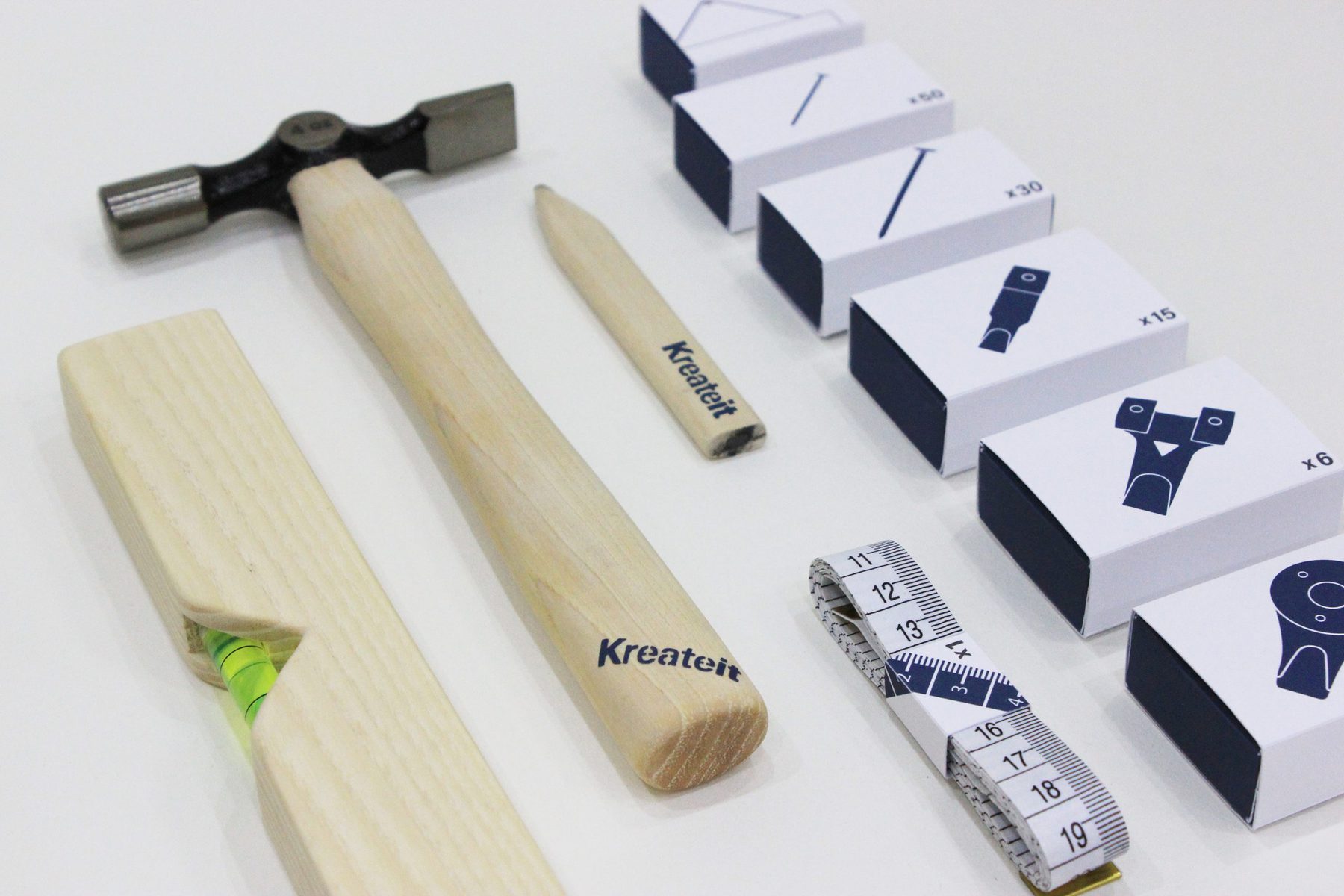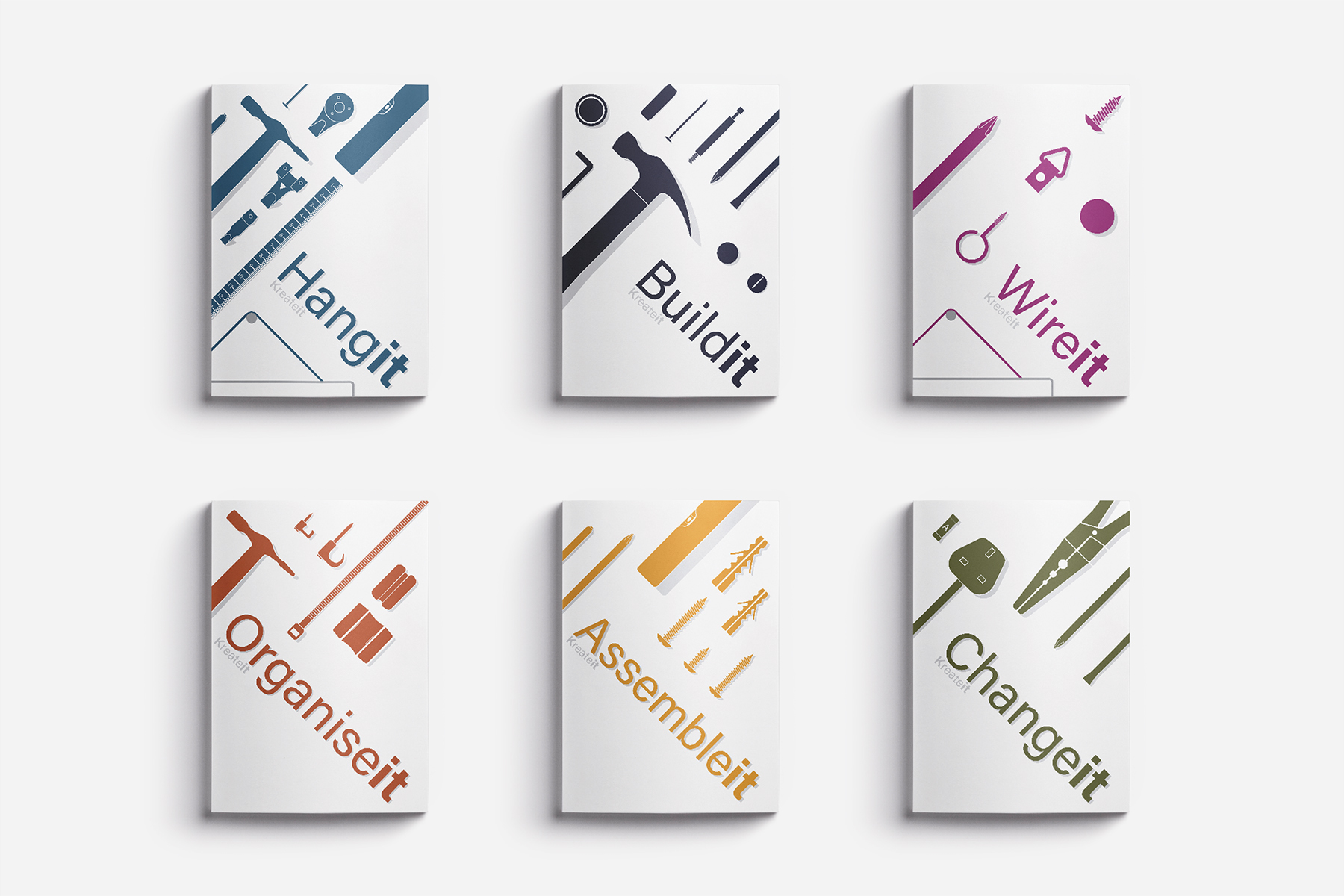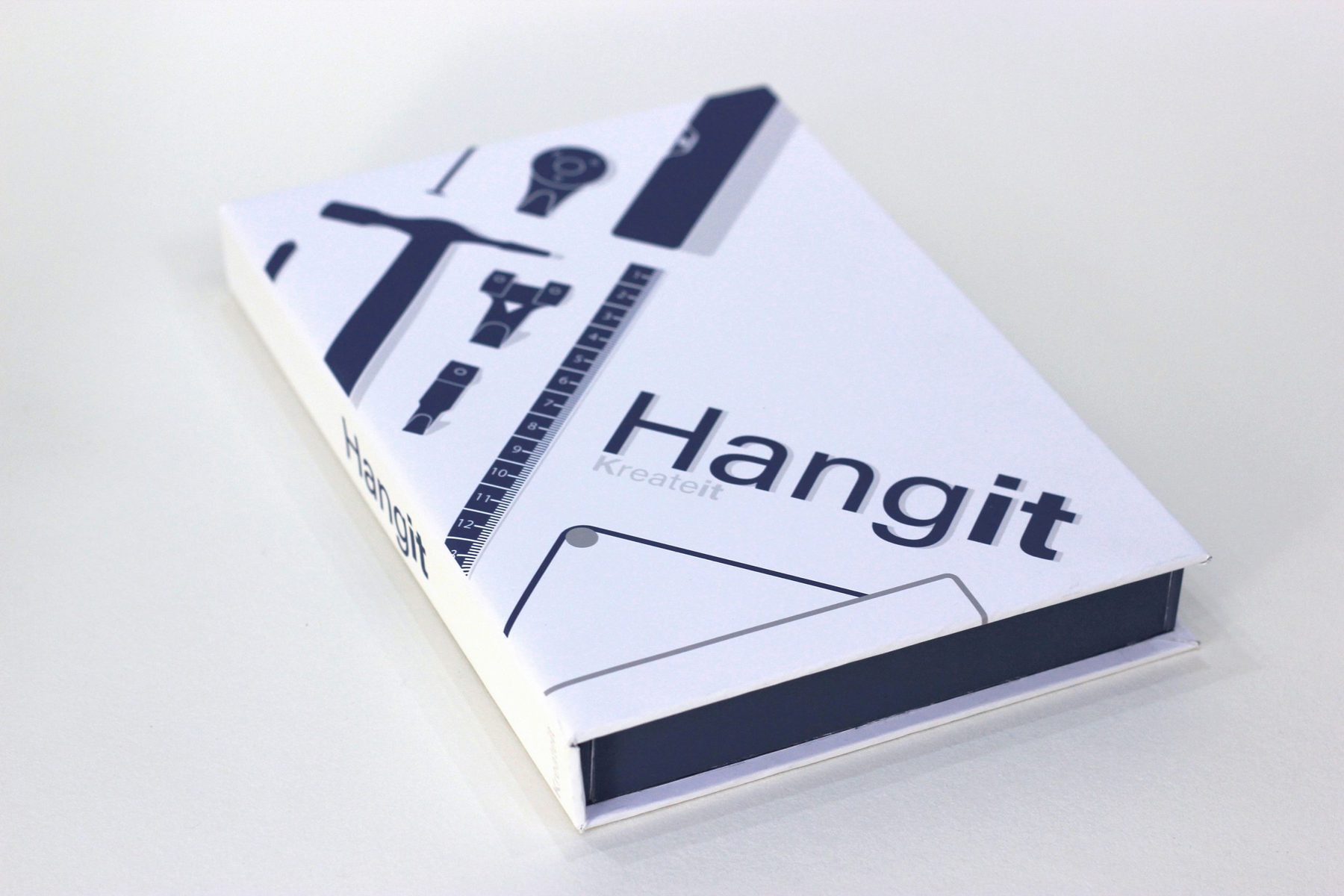With urban populations expanding, increased housing costs and the reduction of space available has resulted in dedicated utilitarian storage becoming less common.
Items that would otherwise be stored in these areas are finding their way into the home, most noticeably within the DIY sector. Due to the industrial nature of current tool kits and their bulky format, these ask to be put away in the back of a cupboard, often being forgotten about. Coupled with connotations with existing tool kits, which get in the way of people having the confidence to use them, this results in the need for an easy-to-use solution to challenge these, that integrates better into the home.
Kreateit was designed as a function-centred tool kit, enhancing usability while promoting user confidence. Part of a range, each kit focuses on a specific common household task, taking the user step by step through the process while containing all the tools, fastenings and guidance needed to perform these tasks.
Sold through existing e-commerce-based marketplaces, user convenience is enhanced furthering commercial reach and meeting current market trends. All kits have been designed to fit around these e-commerce base marketplaces; for instance, the product dimensions allow it to fit through a standard letterbox, meaning that it can still be delivered during the day when the consumer is at work. This form also lends itself to fit in within the home. As an already established resource of knowledge, and a common piece of furniture within the home, a book case provides the natural place for Kreateit to be stored. Providing this natural place for storage and allowing the tool kit’s function to be clearly identifiable by its spine further promotes usage around the home.
CREDIT
- Agency/Creative: Nottingham Trent University
- Article Title: Kreateit by James Plimmer, Nottingham Trent University
- Project Status: Published
- Agency/Creative Country: United Kingdom
- Keywords: WBDS Student Design Awards 2019/20














